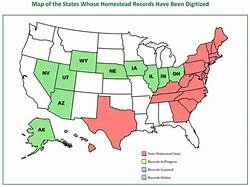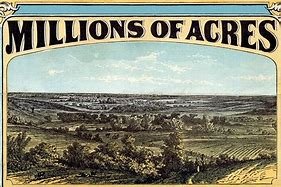
Okay, here’s a SEO-friendly opening paragraph for an article about speculators taking advantage of the Homestead Act, aiming for a conversational tone with a minimum of 300 words. I’ve included the requested punctuation quirks for an extra touch of “unconventional” charm:
The Homestead Act of 1862 was a landmark piece of legislation designed to encourage westward expansion and provide land for struggling Americans. It promised 160 acres of free land to anyone willing to settle it & improve it for five years. This was a fantastic opportunity for many , but it also opened the door for opportunistic speculators to exploit the system & profit from the promise of free land.
Speculators weren’t interested in cultivating the land themselves. Instead, they used their wealth & connections to manipulate the system, buying up land & then reselling it at inflated prices to eager homesteaders. Some even hired individuals to act as “dummy homesteaders” , claiming land for themselves, only to sell it off quickly to unsuspecting buyers. These fraudulent schemes capitalized on the Homestead Act’s promise of free land while sidestepping the intention of the law.
The impact of speculators was multifaceted. First, they often acquired large tracts of land , limiting opportunities for genuine homesteaders who were seeking smaller plots for themselves. Secondly, they fueled a chaotic market , often forcing legitimate homesteaders to pay exorbitant prices for land that should have been free or significantly cheaper. And finally, their exploitation fueled a culture of dishonesty & legal manipulation , casting a shadow over the Homestead Act’s noble goals.
How did they get away with it? It’s a fascinating story , a mixture of ingenuity, exploitation & sometimes outright criminality, & it reflects a larger truth about American expansionism, the intertwined themes of progress & opportunism that shaped the nation’s history. This article will dive deep into the shady world of Homestead Act speculators & uncover the cunning tactics they used to manipulate the system and reap personal profits. Buckle up , because it’s a wild ride!
Related Post : when will the safe banking act be voted on
The Homestead Act: A Dream Turned Nightmare for Many
The Homestead Act of 1862, a landmark piece of legislation, promised complimentary land to anyone willing to settle and cultivate it. It seemed like a dream come true, a chance for individuals to carve out a life for themselves on the vast, open frontier. However, the allure of complimentary land also attracted a varied breed of individuals: speculators. These opportunistic individuals saw the Homestead Act not as a means of establishing a home, but as a lucrative chance for land acquisition and profit.
The Allure of complimentary Land
The Homestead Act of 1862 offered a powerful incentive for westward expansion. By promising 160 acres of land to anyone who would live on it for five years, cultivate it, and make improvements, the act ignited a wave of migration to the American West.
What was the Homestead Act?
The Homestead Act of 1862, signed into law by President Abraham Lincoln, was designed to encourage westward expansion and settlement. It offered 160 acres of public land to any citizen or intended citizen who would cultivate the land for five years, build a home on it, and make improvements.
The Homestead Act of 1862: A Promise of complimentary Land
The Homestead Act promised a chance at a new life, a chance to own land and build a future for oneself and one’s family. It was a powerful symbol of American chance and a driving force behind the settlement of the West.
The Homestead Act's objective: Promoting Westward Expansion
The Homestead Act aimed to populate the West and stimulate its economic development. By making land available to settlers, it encouraged agriculture, trade, and the creation of new communities.
Speculators and the Homestead Act
While the Homestead Act was designed to benefit individuals seeking a new start, it also attracted the attention of speculators – individuals looking to profit from the land industry.
Who were the speculators?
Speculators were individuals or groups who bought land with the intention of reselling it at a profit. They were not interested in settling the land themselves but saw the Homestead Act as a way to acquire cheap land and then reap the rewards of a rising industry.
How did they exploit the Homestead Act?
Speculators found various ways to exploit the Homestead Act for their own gain. They used loopholes in the law, created fake homesteaders, and engaged in fraudulent claims, all to acquire large tracts of land and then sell them for a profit.
The Rise of Land Speculation
The Homestead Act, with its promise of complimentary land, created a fertile ground for land speculation. As the West opened up and demand for land grew, speculators saw a lucrative chance to acquire land cheaply and resell it at a much higher price.
The Homestead Act: A Target for Speculators
The Homestead Act’s generous terms made it an irresistible target for speculators. They saw the chance to claim large amounts of land cheaply, then sell it off to actual settlers or developers at a much higher price.
The approachs of Speculators
Speculators employed various approachs to exploit the Homestead Act. These approachs often involved deceit, manipulation, and taking benefit of the legal loopholes in the law.
Dummy entries: How speculators used fake homesteaders
One common approach was to create “dummy entries.” Speculators would find individuals willing to file claims on land in exchange for a small payment. These individuals, known as “dummy homesteaders,” had no intention of actually settling the land. They would simply file a claim and then transfer the land to the speculator.
Land grabbing: Using loopholes to claim vast tracts
Another approach involved exploiting loopholes in the law. Speculators would use family members or friends to file claims on adjacent pieces of land, exceeding the 160-acre limit. They would then combine these claims, creating large tracts of land for resale.
Fraudulent claims: Deception and manipulation
Speculators often used outright fraud to claim land. They would forge documents, bribe officials, or use other forms of deception to gain control of land that they were not legally entitled to.
The Impact of Speculation on Homesteaders
While the Homestead Act promised a chance at a new life, the reality for many homesteaders was far from idyllic. The presence of speculators created a rival and often unfair environment, making it difficult for actual settlers to obtain land.
The consequences for real homesteaders
The rise of land speculation made it much harder for genuine homesteaders to acquire land. They faced competition from speculators who had more resources and were willing to use any means to secure land.
The struggle to claim land
Homesteaders often found themselves in a constant struggle to secure their land claims. Speculators would use various approachs to undermine their claims, making the process long, arduous, and often discouraging.
The frustration and disappointment
The experience of homesteaders was often marked by frustration and disappointment. The dream of complimentary land was often replaced by a harsh reality of competition, legal battles, and the constant threat of losing their land to speculators.
The Legacy of Speculation
The legacy of speculation in the Homestead Act era is a complex one. While it contributed to the rapid development of the West, it also left a lasting impact on land ownership patterns and the experience of early settlers.
The long-term effects on land ownership
The practices of speculators during the Homestead Act era contributed to the concentration of land ownership in the hands of a few. While the act intended to create a landowning democracy, the prevalence of speculation undermined this objective.
The myth of the complimentary land frontier
The Homestead Act created a myth of a complimentary land frontier, a place where anyone could build a new life. However, the reality was far from this ideal. The presence of speculators created a system that was often unfair and exploitative.
Lessons learned from the Homestead Act era
The Homestead Act era offers valuable lessons about the dangers of unchecked speculation and the importance of ensuring fair access to resources. It highlights the need for regulations and safeguards to prevent exploitation and protect the rights of individuals.
Conclusion
The Homestead Act is a complex story, one that represents both the promise and the perils of westward expansion. While the act offered a chance at a new life for many, it also became a vehicle for exploitation by speculators. Their actions had a lasting impact on land ownership patterns and the lives of homesteaders, reminding us of the enduring challenges of balancing individual chance with the need for fairness and regulation.
The Homestead Act: A Complex Story
The Homestead Act is a story of both chance and exploitation, a testament to the allure of the American dream and the darker side of human ambition. It reminds us that even the most well-intentioned policies can be vulnerable to manipulation and that the quest for profit can often come at the expense of fairness and equity.
Speculation: A dark side of American expansion
Speculation played a significant function in the westward expansion of the United States, highlighting the dark side of this historical period. While the Homestead Act offered a chance at a new life, speculators often exploited the system, creating a complex and often unfair environment for genuine homesteaders.
The enduring lessons of land ownership and speculation
The Homestead Act era offers enduring lessons about the importance of responsible land ownership and the dangers of unchecked speculation. It reminds us that land is not simply a commodity but a resource that should be used sustainably and fairly. It serves as a cautionary tale about the need for strong regulations and safeguards to ensure that opportunities are available to all and that the pursuit of profit does not come at the expense of fairness and equity.

Leave a Reply